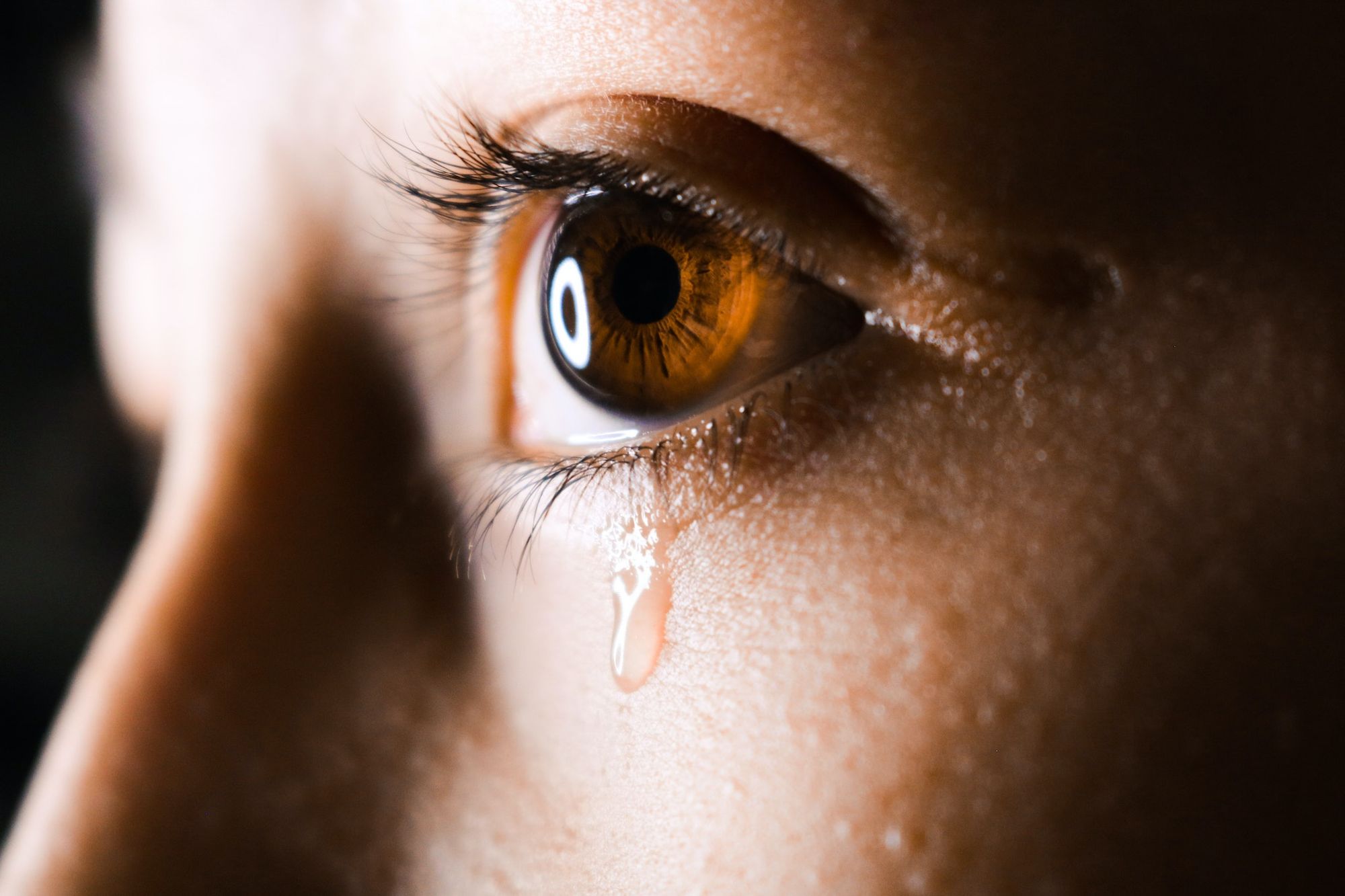Why are you crying?

Now Mary stood outside the tomb crying. As she wept, she bent over to look into the tomb and saw two angels in white, seated where Jesus’ body had been, one at the head and the other at the foot. They asked her, “Woman, why are you crying?” “They have taken my Lord away,” she said, “and I don’t know where they have put him.” (John 20:11–13)
The Easter story is full of surprising events and surprising questions. Here in this part of John’s gospel we have a surprising question from the angels to Mary on the first Easter Sunday: “Why are you crying?”
Surely it is obvious why Mary is crying? She loved Jesus and she saw him crucified just a few days earlier. Now she has come to the tomb to pay her respects to him. But she has found the tomb empty and the body gone.
Mary is no naive dupe. She was not expecting Jesus to rise. Even confronted with the empty tomb, her first response is to think that someone has removed the body and buried him somewhere else. She is filled with grief and tears because of Jesus’ death and because of the desecration of Jesus’ body.
Perhaps one of the angels gestures to Mary to turn around, because she does so, and as verse 14 says:
At this, she turned around and saw Jesus standing there, but she did not realize that it was Jesus. (v14)
Now we know that Jesus could prevent people from recognising him, as he did with the disciples on the road to Emmaus. But he is quick to help Mary understand who he is here, so it’s unlikely that is what is going on. More likely is that Mary is so overcome with grief that she simply cannot see clearly through her tears. Everything is a tearful blur and she assumes this voice is the gardener. But one word – her name – is enough for her misunderstanding to disappear and for her to realise she is standing before the risen Christ.
That same risen Christ asks her the same question as the angels: “Why are you crying?” The reason he asks is because the resurrection turns tears into joy.
Jesus asks Mary ‘why are you crying’ because this is not a time for tears. What she thought was a day full of grief and loss is actually a day for rejoicing and celebration. Jesus has gone through death and come out the other side. Not tears but joy.
And the resurrection continues to turn tears into joy. The victory that Jesus won over sin and death on Easter Sunday is still a victory won. It will always be a victory for those who disciples of the risen Christ.
Tony Hendra, the television producer behind the series Spitting Image from the 1980s, wrote this in The Times not long ago:
“The resurrection of Jesus is a pay-off that out-Hollywoods the Hollywood ending: all the flooding emotion of a tragedy followed by all the bubbling joy of a comedy. Not just to live happily ever after; but to die – and still live happily ever after. It’s the most audacious claim of Christianity, the one element that marks the brand indelibly, that trumps the claims of all other major faiths.”
The audacious claim of Christianity is that Jesus is risen indeed. And that this fact transforms tears into joy. That does not mean that Christians live tear-free lives. Jesus’ life was not tear free, and neither are ours. Christians through the ages have not floated above pain and suffering, but lived in and amongst it. Tears will come.
But it means that we know that tears are not the end. That even the greatest pain and greatest enemy of death has been defeated. There is hope for an end to weeping and sorrow. And that hope is certain because Jesus has been there before us and has come back to prove it to be true.
In the light of the resurrection, the question to Mary becomes a question for us too. Jesus asks us, “Why are you crying?” Ee can have plenty of legitimate answers to that. I’m crying because I have lost a loved one; I’m crying because of chronic illness; I’m crying because of the oppression, injustice and cruelty done to me, or to others, in this world. Those are things to cry over. There are tears to be shed.
But Jesus’ question and Jesus’ resurrection remind us that we are crying only for a time. There will be a day when wrongs will finally and fully be put right; when death and dying will cease; when every tear will be wiped from our eyes. When the tears will finally part and, like Mary, we will see Jesus clearly, face to face.
“Why are you crying?” asks Jesus, because the resurrection turns tears into joy.
